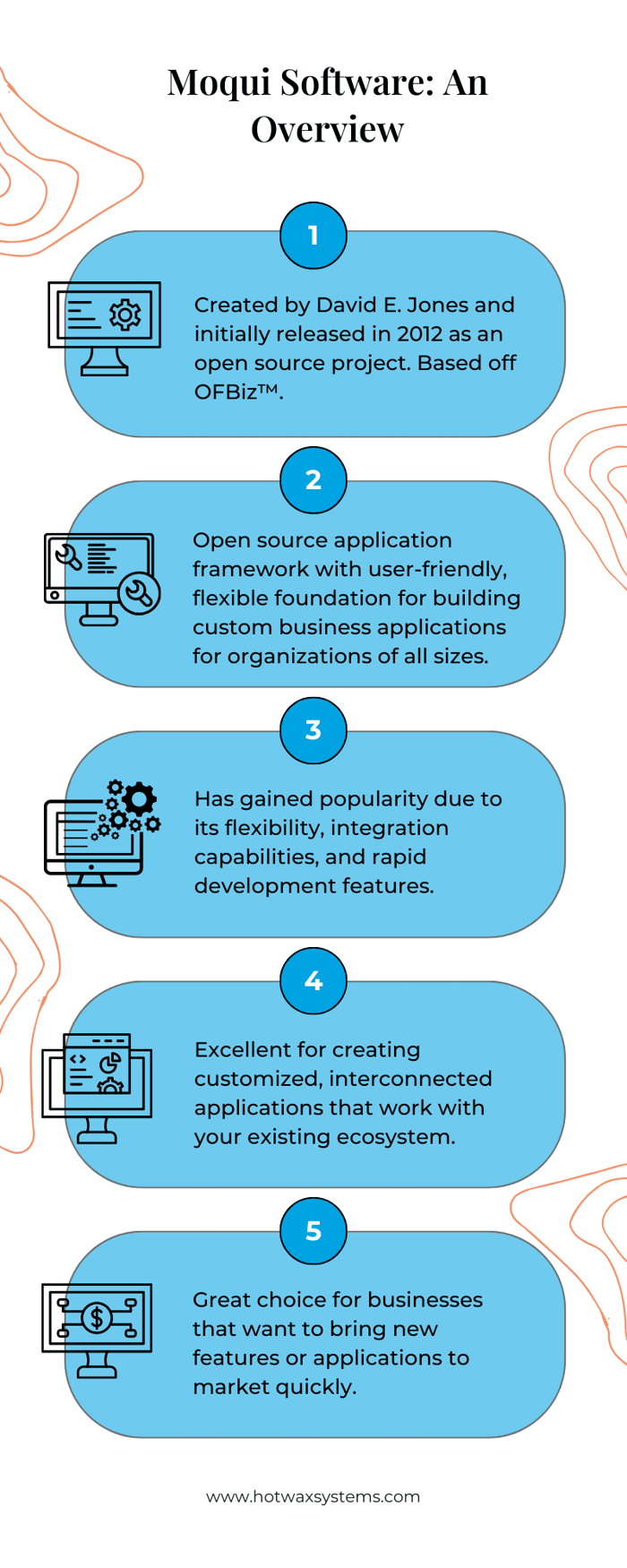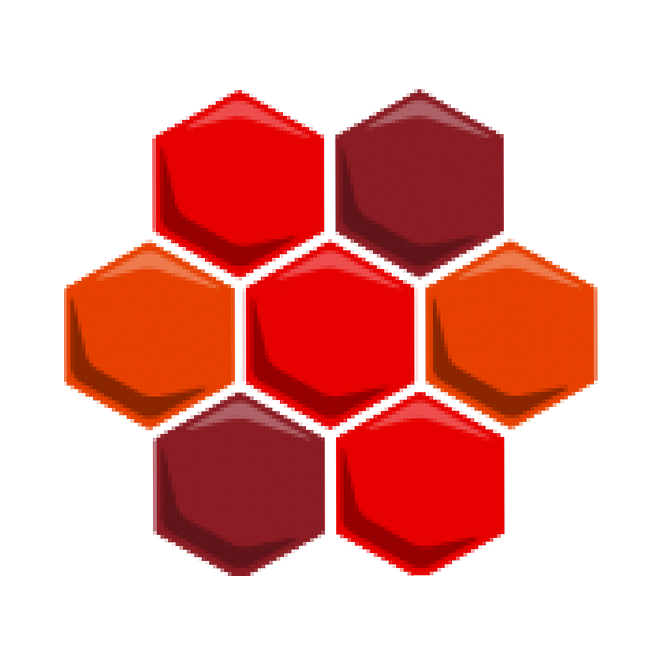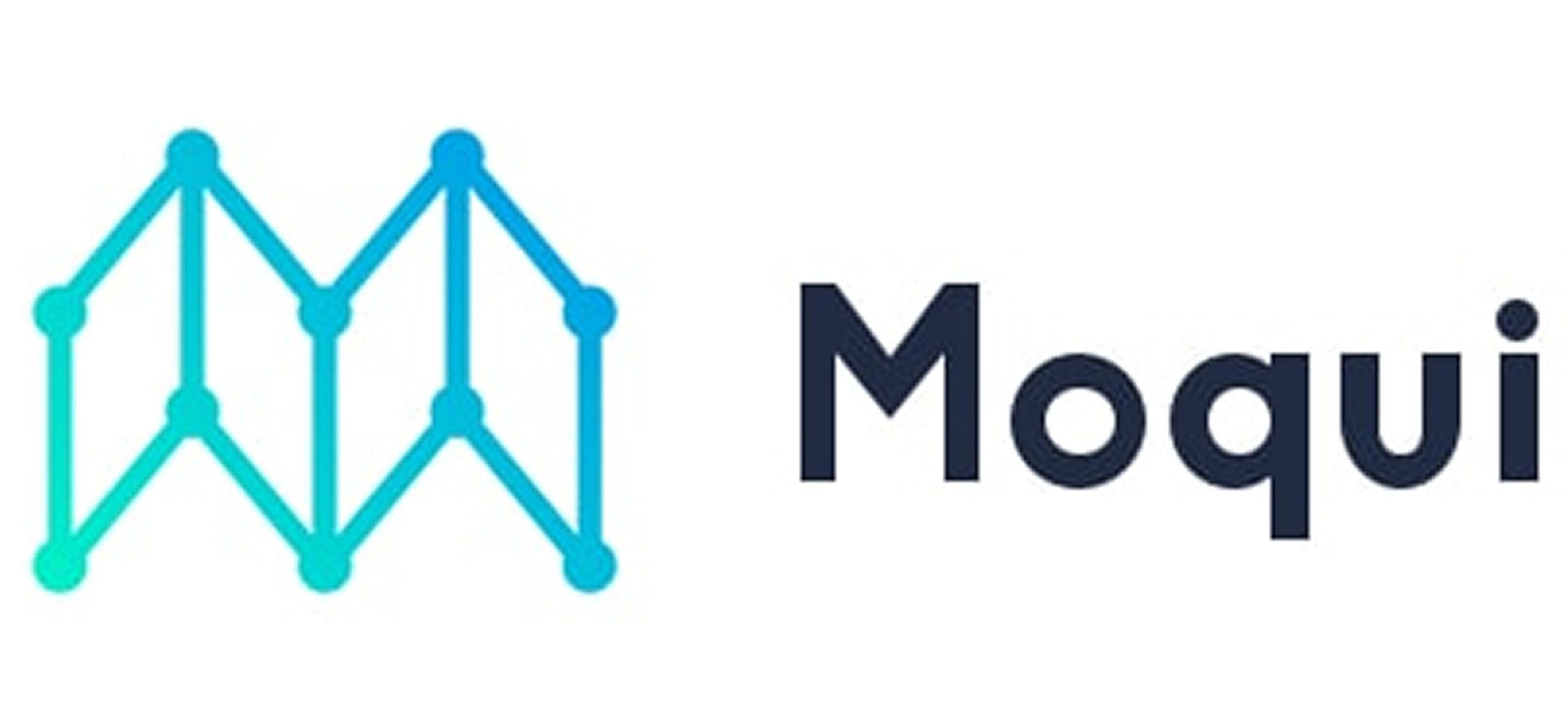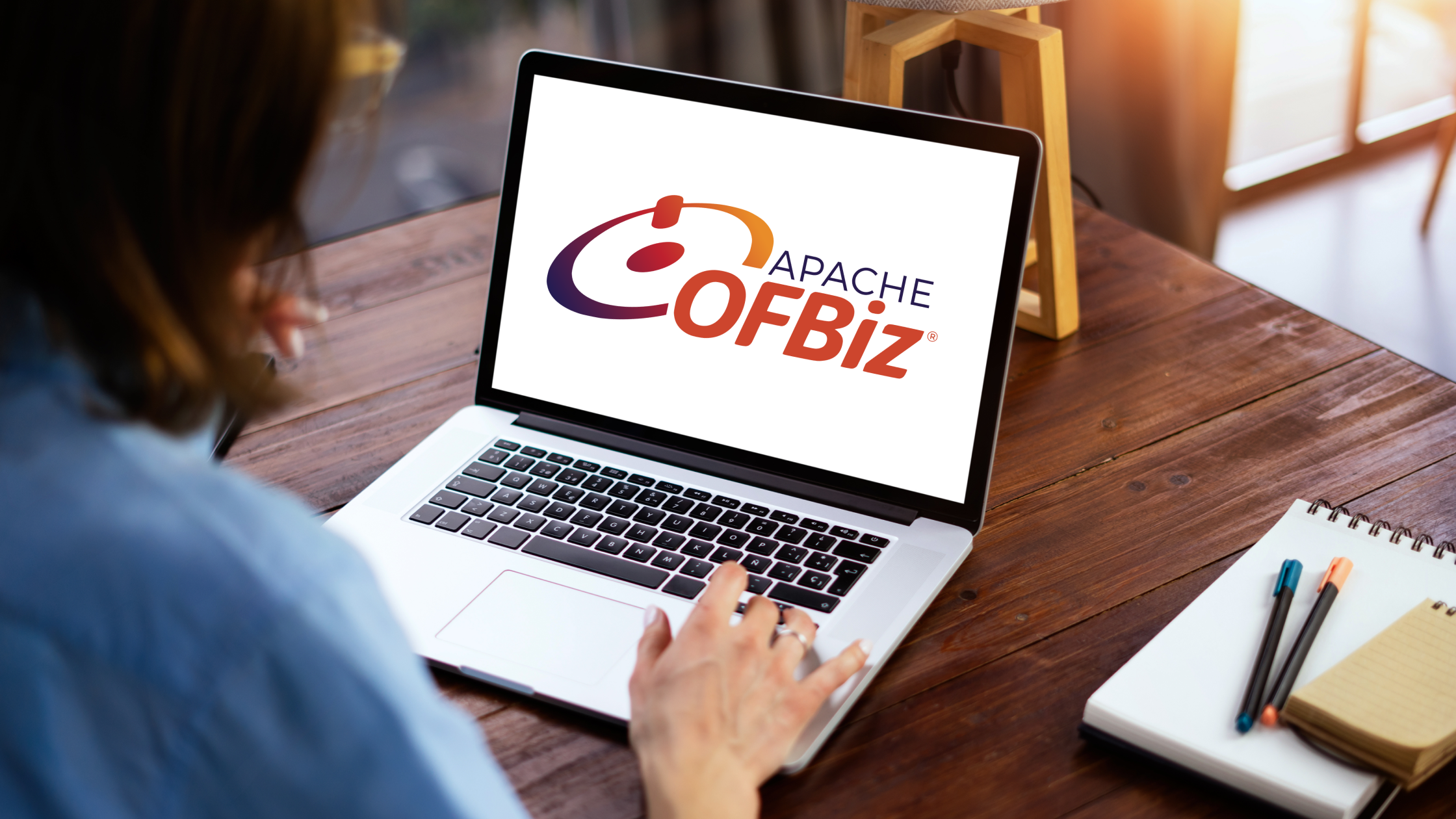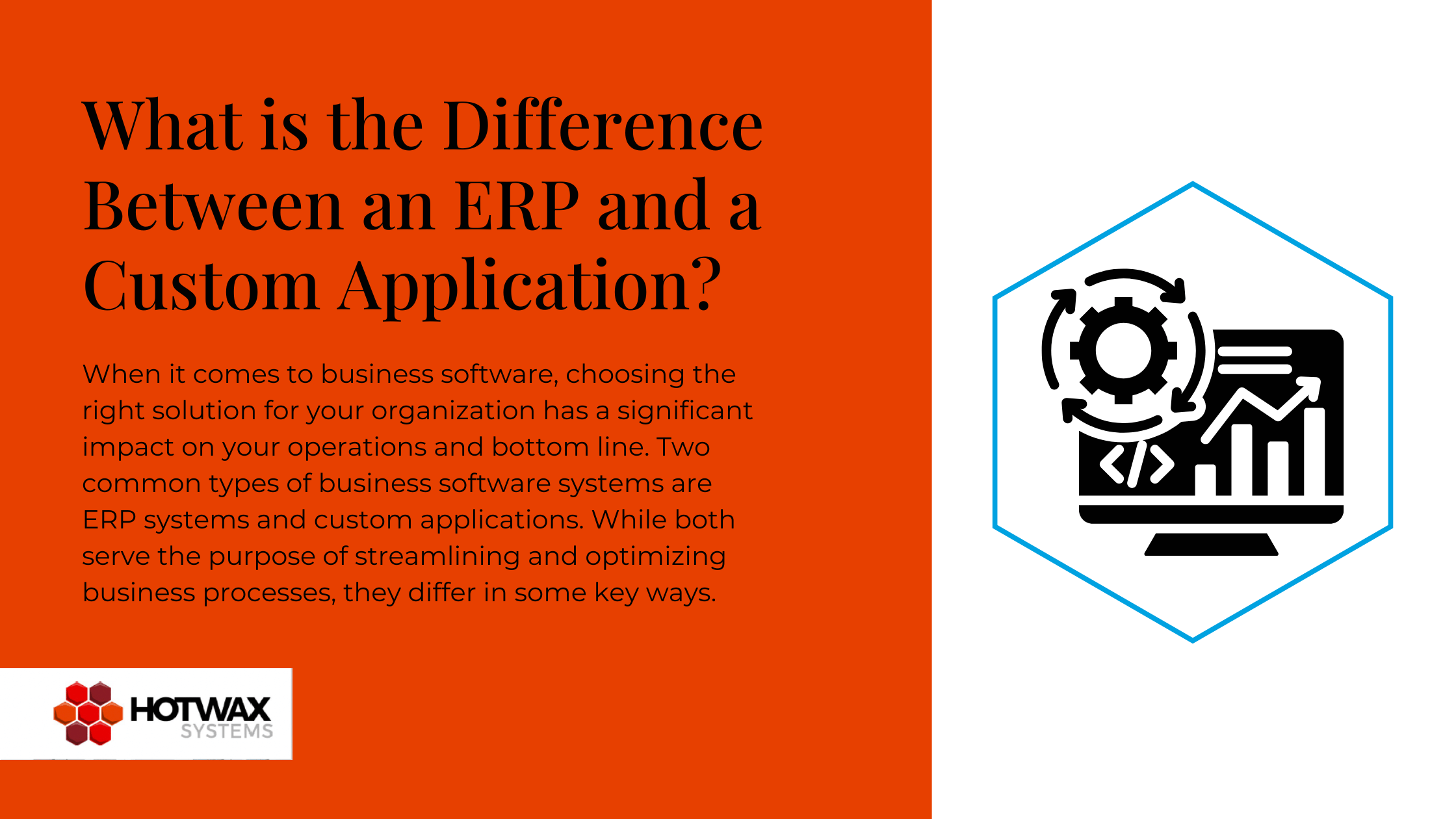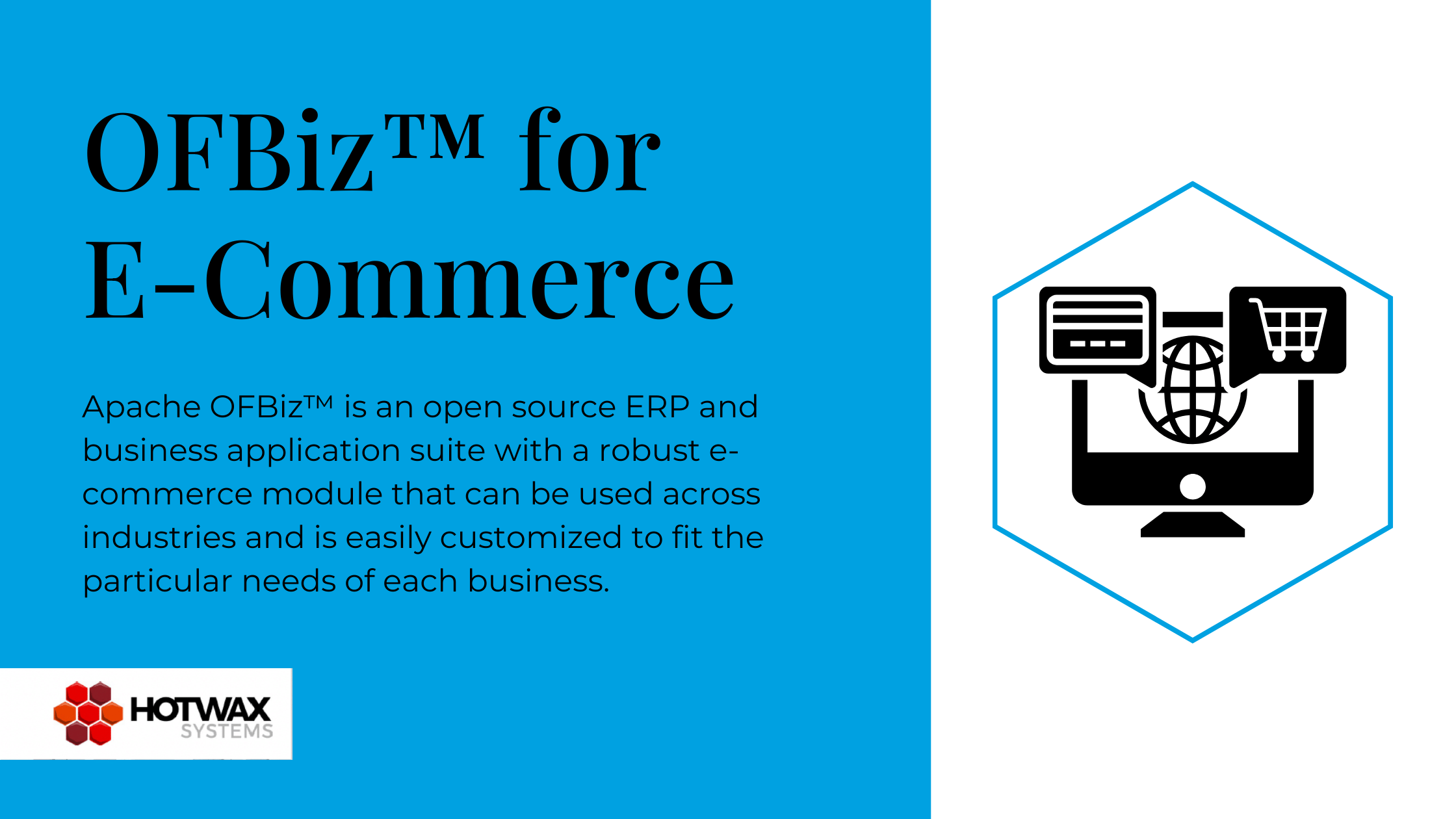What is Moqui?
Moqui is an open source ERP and business application framework that provides a user-friendly and flexible foundation for building custom business applications for organizations of all sizes. At its core, Moqui offers a set of robust libraries, tools, and services that facilitate the development, customization, and maintenance of business applications. It’s designed to streamline operations, enhance efficiency, and foster innovation within an organization.
A glimpse into Moqui's history
Moqui was created by David E. Jones, the creator of OFBiz™, and initially released in 2012 as an open source project. Moqui is similar in a lot of ways to Apache OFBiz™, but is considered to be more refined and lightweight in its code base. Over the years, it has evolved and garnered a dedicated community of developers and users who have contributed to its growth.
Benefits and features of Moqui
Moqui's appeal lies in its numerous benefits and features, which cater to the needs of tech leaders and developers alike. Here are some of its key advantages and standout features:
1. Open source
Because Moqui is open source, the possibilities for custom application and system development are much more expansive. Businesses can get their needs met as they change and grow without having to do a complete system overhaul.
2. Highly customizable
Moqui's modular architecture allows developers to create highly customized solutions tailored to their specific business requirements. It supports rapid development, making it possible to bring new features and functionalities to market quickly.
3. Integration friendly
One of Moqui's strengths is its ability to seamlessly integrate with existing systems. Whether you're looking to connect with databases, third-party applications, or external APIs, Moqui's robust integration capabilities make it a breeze.
4. Scalability and performance
As your business grows, so do your software requirements. Moqui is built to scale with your organization. Its performance optimization features ensure that your applications run efficiently, even as your user base expands.
5. Comprehensive set of tools
Moqui comes equipped with a wide array of tools, including workflow management, data modeling, and security features. This comprehensive toolkit simplifies the development process and enhances productivity.
6. Community support
The Moqui community is an invaluable resource for developers. With active forums, documentation, and user-contributed plugins, it’s easy to find the support and resources you need to succeed.
.png?width=700&height=525&name=Moqui%20(4).png)
Why organizations adopt Moqui
While there are plenty reasons why an organization would choose to adopt Moqui, some of the most common reasons why include:
1. Flexibility and adaptability
In today's fast-paced business environment, flexibility is key. Organizations need software that can adapt to changing needs and market conditions, and Moqui's flexibility allows companies to pivot quickly and respond to new opportunities or challenges.
2. Cost efficiency
The cost savings associated with open source software can be significant. By opting for Moqui, organizations can allocate resources to other critical areas of their business, such as marketing, product development, or customer service.
3. Integration capabilities
Many companies operate with a complex ecosystem of software applications. Moqui's ability to integrate seamlessly with existing systems simplifies data exchange, streamlines processes, and ensures a more cohesive IT infrastructure.
4. Rapid development
Moqui's rapid development capabilities enable organizations to build and deploy new features and applications quickly, which puts them at a competitive advantage.
Moqui vs OFBiz™
Both of these platforms have powerful capabilities, but also have distinct characteristics that may make them better suited for different scenarios.
Apache OFBiz is an open source ERP and CRM system that’s been around for over a decade. It’s part of the Apache Software Foundation, and is designed to support various business processes, including order management, manufacturing, supply chain management, and more.
As discussed earlier, Moqui is an open source ERP and business application framework. It’s relatively new compared to OFBiz but has gained popularity due to its flexibility, integration capabilities, and rapid development features.
The decision to choose between OFBiz and Moqui largely depends on your organization's specific needs and priorities. Here are some factors to consider when making your choice:
1. Scope and complexity of operations:
-
OFBiz: If your organization has complex and diverse operations that require a comprehensive set of built-in features, OFBiz might be the better choice. It offers a broad range of functionalities out of the box.
-
Moqui: If your business focuses on specific processes or requires high customization to meet unique requirements, Moqui's flexibility and modular design may be more suitable.
2. Stability vs. innovation:
-
OFBiz: If you prioritize stability and a mature codebase, OFBiz's long history and established community make it a reliable option.
-
Moqui: If you're looking for a platform that embraces newer development practices, rapid iteration, and innovation, Moqui's active development community and modern approach may be more appealing.
3. Integration needs:
-
OFBiz: If your organization relies heavily on existing systems and requires a seamless integration of various applications, OFBiz's extensive integration capabilities can be advantageous.
-
Moqui: Moqui is also adept at integration but excels in scenarios where you need to create customized, interconnected applications that work harmoniously with your existing ecosystem.
4. Development speed:
-
OFBiz: Developing within the established framework of OFBiz may initially be faster for businesses that require standard ERP features.
-
Moqui: Moqui's rapid development capabilities are particularly useful for businesses looking to quickly bring new features or applications to market.
Both OFBiz and Moqui are valuable open source ERP solutions with distinct strengths.
OFBiz is a mature platform with a wide range of built-in features, making it an excellent choice for organizations with complex and diverse operations.
On the other hand, Moqui's flexibility, integration capabilities, and rapid development features make it a versatile choice for businesses looking to create highly customized, interconnected applications.
.png?width=700&height=525&name=Moqui%20(3).png)
How to assess if your business would benefit from Moqui
While Moqui offers a plethora of advantages, it may not be the right fit for every organization. Here are some factors to consider when assessing if your business would benefit from implementing Moqui:
1. Business complexity
Moqui is particularly well-suited for businesses with complex operations, such as manufacturing, logistics, or large scale e-commerce. If your organization has intricate workflows and data management requirements, Moqui can help streamline processes.
2. Scalability needs
If your business is experiencing growth or planning to scale in the near future, Moqui's scalability ensures that your software can expand to accommodate increased demand without major disruptions.
3. Integration requirements
If your organization heavily relies on integrating with third party systems, whether it's for data exchange, payment processing, or customer relationship management, Moqui's integration capabilities can simplify these processes.
4. Customization demands
Organizations that require highly customized software solutions to meet specific business needs will benefit from Moqui's flexible architecture, enabling tailored development.
5. Budget
For businesses with limited IT budgets, the cost effectiveness of open source solutions like Moqui can be a compelling reason to explore its adoption.
Conclusion
In the ever evolving landscape of enterprise software, finding the right solution to meet your organization's needs is essential. Moqui, with its open source nature, flexibility, scalability, and integration capabilities, is a powerful tool that can empower tech leaders and developers to build custom business applications that drive efficiency and innovation.
Before embarking on a Moqui implementation, assess your organization's complexity, scalability needs, integration requirements, customization demands, and budget constraints. If Moqui aligns with your business goals and requirements, it could be the key to unlocking greater efficiency and agility in your operations.
